
Climate Change, Sustainable Energy & Environment
Policy areas:
- Fighting climate change while relaunching the global economy
- Just transition towards climate-neutral economies
- Food and water security in the post-Covid19 scenario
- Guidelines and objectives for sustainable cities
- Aims, measures and tools to enhance the circular economy
- Preserving marine biodiversity and natural protected areas
- Green investments and the public-private link
- Sustainable development education to empower the youth
- Climate resilience in least-developed and developing countries
Lead Co-Chair:
Co-Chairs:
Coordinator:
TF2 Policy Briefs – Climate Change, Sustainable Energy & Environment
Enrico Giovannini
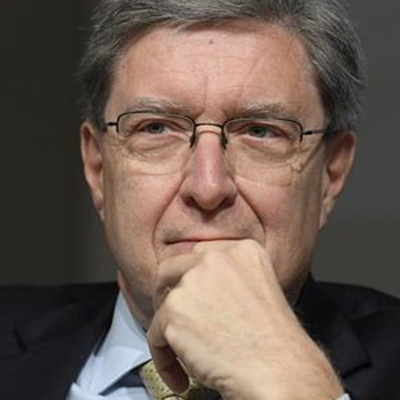 Enrico Giovannini is Full Professor of economic statistics and sustainable development at the University of Rome “Tor Vergata”, of sustainable development at LUISS and at the National School of Administration (SNA). He is the Co-Founder and Director of the Italian Alliance for Sustainable Development, a coalition of more than 240 organisations established to implement in Italy the UN 2030 Agenda. He was Director of Statistics and Chief Statistician of the OECD (2001-2009), President of the Italian Statistical Institute (2009-2013) and Minister of Labour and Social Policies (2013-2014). In October 2014, the President of the Italian Republic made him “Cavaliere di Gran Croce al Merito della Repubblica”, the highest ranking honour of the Italian Republic. He is the author of more than 100 articles and six books on statistical and economic topics.
Enrico Giovannini is Full Professor of economic statistics and sustainable development at the University of Rome “Tor Vergata”, of sustainable development at LUISS and at the National School of Administration (SNA). He is the Co-Founder and Director of the Italian Alliance for Sustainable Development, a coalition of more than 240 organisations established to implement in Italy the UN 2030 Agenda. He was Director of Statistics and Chief Statistician of the OECD (2001-2009), President of the Italian Statistical Institute (2009-2013) and Minister of Labour and Social Policies (2013-2014). In October 2014, the President of the Italian Republic made him “Cavaliere di Gran Croce al Merito della Repubblica”, the highest ranking honour of the Italian Republic. He is the author of more than 100 articles and six books on statistical and economic topics.
Paolo Magri
 Paolo Magri is Executive Vice President of the Italian Institute for International Political Studies (ISPI) and Professor of International Relations at Bocconi University. He is member of the Strategic Committee of the Italian Ministry of Foreign Affairs and International Cooperation, member of the Europe Policy Group of the World Economic Forum (Davos) and member of the Board of Directors of the Italy-China Foundation. He is also member of the Scientific Committees of the Elcano Royal Institute, the Center of Excellence for Stability Police Units (CoESPU) and of the Military Centerfor Strategic Studies (Ce.Mi.S.S.). He is a regular speaker, writer and commentator to diverse media outlet on global issues, US foreign policy, Iran and Middle East. Previously, he served as Programme Director to the UN Secretariat in New York and, up to 2005, as Director of International Affairs at Bocconi University in Milan.
Paolo Magri is Executive Vice President of the Italian Institute for International Political Studies (ISPI) and Professor of International Relations at Bocconi University. He is member of the Strategic Committee of the Italian Ministry of Foreign Affairs and International Cooperation, member of the Europe Policy Group of the World Economic Forum (Davos) and member of the Board of Directors of the Italy-China Foundation. He is also member of the Scientific Committees of the Elcano Royal Institute, the Center of Excellence for Stability Police Units (CoESPU) and of the Military Centerfor Strategic Studies (Ce.Mi.S.S.). He is a regular speaker, writer and commentator to diverse media outlet on global issues, US foreign policy, Iran and Middle East. Previously, he served as Programme Director to the UN Secretariat in New York and, up to 2005, as Director of International Affairs at Bocconi University in Milan.
Franco Bruni
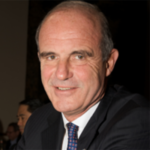 Franco Bruni is ISPI Vice President and Co-Head, Centre on Europe and Global Governance. He is Professor Emeritus in the Department of Economics of Bocconi University. Italian member of the European Shadow Financial Regulatory Committee, he has co-chaired the task force International Financial Architecture in the T20 since 2018. He has been Vice President and President of the Société Européenne de Recherches Financières. Holds degrees from Bocconi and MIT. He has been visiting professor in several international universities, including NYU, Fudan and, Getulio Vargas. He authored many publications in the fields of Macroeconomics, European Economics, International Banking and Finance. He has been an independent member of the Board of Saipem(1998-2005), Unicredit Banca Mobiliare (2000-2007), Pirelli (2005-2014), Mediaset (2015-18).
Franco Bruni is ISPI Vice President and Co-Head, Centre on Europe and Global Governance. He is Professor Emeritus in the Department of Economics of Bocconi University. Italian member of the European Shadow Financial Regulatory Committee, he has co-chaired the task force International Financial Architecture in the T20 since 2018. He has been Vice President and President of the Société Européenne de Recherches Financières. Holds degrees from Bocconi and MIT. He has been visiting professor in several international universities, including NYU, Fudan and, Getulio Vargas. He authored many publications in the fields of Macroeconomics, European Economics, International Banking and Finance. He has been an independent member of the Board of Saipem(1998-2005), Unicredit Banca Mobiliare (2000-2007), Pirelli (2005-2014), Mediaset (2015-18).
John Kirton
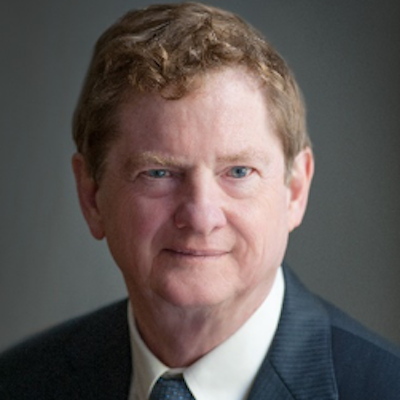 John J. Kirton is director and founder of the G20 Research Group and the G7 Research Group, co-director of the BRICS Research Group, and co-director of the Global Health Diplomacy Program, all in the Global Governance Program at Trinity College in the University of Toronto, where he is a professor of political science and Canadian foreign policy (on sabbatical for the 2020/21 academic year). He is a visiting professor at the School for International Relations and Public Affairs at the Shanghai International Studies University and a distinguished fellow of the Guangdong Institute for International Strategies at Guangdong University for Foreign Studies. He is the author of China’s G20 Governance (2016) and G20 Governance for a Globalized World (2013) and co-author of Global Governance of Climate Change: G7, G20 and UN Leadership (2015). He is co-editor of Accountability for Effectiveness in Global Governance (2018), BRICS and Global Governance (2018) and The G8-G20 Relationship in Global Governance (2015), along with many other books. He is co-editor of the series of G7/G20 summit publications, with GT Media Group and the Global Governance Project, which most recently produced G20 Saudi Arabia: The 2020 Riyadh Summit and G7 USA: The 2020 Virtual Year, as well as a series on health, most recently Health: A Political Choice – Act Now, Together. Follow him on Twitter @jjkirton.
John J. Kirton is director and founder of the G20 Research Group and the G7 Research Group, co-director of the BRICS Research Group, and co-director of the Global Health Diplomacy Program, all in the Global Governance Program at Trinity College in the University of Toronto, where he is a professor of political science and Canadian foreign policy (on sabbatical for the 2020/21 academic year). He is a visiting professor at the School for International Relations and Public Affairs at the Shanghai International Studies University and a distinguished fellow of the Guangdong Institute for International Strategies at Guangdong University for Foreign Studies. He is the author of China’s G20 Governance (2016) and G20 Governance for a Globalized World (2013) and co-author of Global Governance of Climate Change: G7, G20 and UN Leadership (2015). He is co-editor of Accountability for Effectiveness in Global Governance (2018), BRICS and Global Governance (2018) and The G8-G20 Relationship in Global Governance (2015), along with many other books. He is co-editor of the series of G7/G20 summit publications, with GT Media Group and the Global Governance Project, which most recently produced G20 Saudi Arabia: The 2020 Riyadh Summit and G7 USA: The 2020 Virtual Year, as well as a series on health, most recently Health: A Political Choice – Act Now, Together. Follow him on Twitter @jjkirton.
Noura Mansouri
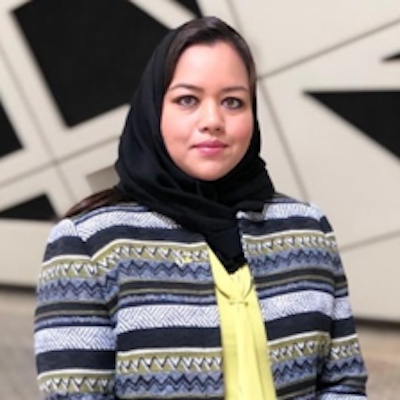 Noura Mansouri was the Lead Co-chair of Task Force 2 Climate Change and Environment, Think 20 Saudi Arabia 2020, a Research Fellow at King Abdullah Petroleum Studies and Research Centre (KAPSARC), a Research Affiliate at the Massachusetts Institute of Technology (MIT), and an Expert at the World Energy Council (WEC). Previously, Dr. Mansouri has worked at AREVA, then then global leader in nuclear energy and fuel cycle. She earned her MBA and PhD degrees in sustainability and energy transitions from University of London. She is the author of ‘Greening the Black Gold: Saudi Arabia’s Quest for Clean Energy’. Dr. Mansouri completed a post-doctoral research fellowship at MIT, and she is a recipient of the Ibn Khaldun Fellowship from the Center for Clean Water and Clean Energy at MIT and the King Fahad University for Petroleum and Minerals (KFUPM). Dr. Mansouri was selected as a young scientist to attend the Lindau Nobel Laureate 2017 Meeting in Economic Sciences, she was also selected as a member of the Zayed Sustainability Prize Review Committee for 2018 and the Selection Committee for 2019, 2020, and 2021, and received the 2015 Women Excellence Leadership Award under the category “Rising Stars”, she is also a board member at Women in Clean Energy under the Clean Energy Business Council for the Middle East and North Africa.
Noura Mansouri was the Lead Co-chair of Task Force 2 Climate Change and Environment, Think 20 Saudi Arabia 2020, a Research Fellow at King Abdullah Petroleum Studies and Research Centre (KAPSARC), a Research Affiliate at the Massachusetts Institute of Technology (MIT), and an Expert at the World Energy Council (WEC). Previously, Dr. Mansouri has worked at AREVA, then then global leader in nuclear energy and fuel cycle. She earned her MBA and PhD degrees in sustainability and energy transitions from University of London. She is the author of ‘Greening the Black Gold: Saudi Arabia’s Quest for Clean Energy’. Dr. Mansouri completed a post-doctoral research fellowship at MIT, and she is a recipient of the Ibn Khaldun Fellowship from the Center for Clean Water and Clean Energy at MIT and the King Fahad University for Petroleum and Minerals (KFUPM). Dr. Mansouri was selected as a young scientist to attend the Lindau Nobel Laureate 2017 Meeting in Economic Sciences, she was also selected as a member of the Zayed Sustainability Prize Review Committee for 2018 and the Selection Committee for 2019, 2020, and 2021, and received the 2015 Women Excellence Leadership Award under the category “Rising Stars”, she is also a board member at Women in Clean Energy under the Clean Energy Business Council for the Middle East and North Africa.
Jun Arima
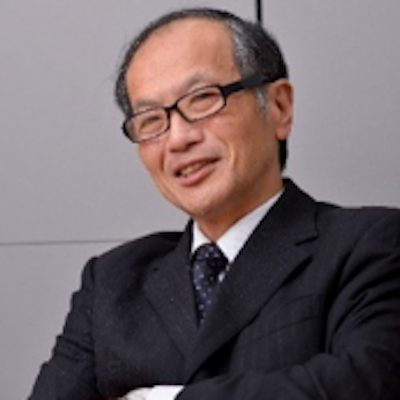 Jun Arima is a Professor at the Graduate School of Public Policy, University of Tokyo. He has been a Counselor at the Japanese Delegation to the Organization for Economic Cooperation and Development (OECD), and Head of the Country Studies Division at the International Energy Agency. He participated in the United Nations Framework Convention on Climate Change (UNFCCC) negotiation as a chief negotiator.
Jun Arima is a Professor at the Graduate School of Public Policy, University of Tokyo. He has been a Counselor at the Japanese Delegation to the Organization for Economic Cooperation and Development (OECD), and Head of the Country Studies Division at the International Energy Agency. He participated in the United Nations Framework Convention on Climate Change (UNFCCC) negotiation as a chief negotiator.Johan Swinnen
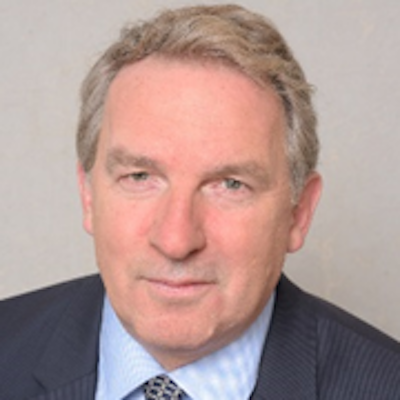 Johan Swinnen became director general of the International Food Policy Research Institute (IFPRI) in January 2020. He is a member of the Champions 12.3 Leadership Group to Reduce Food Loss and Waste (SDG Target 12.3), the Africa Europe Strategic Task Force on Sustainable Agriculture and Food Systems, and also serves as the Commissioner of the Food Systems Economics Commission. Prior to joining IFPRI, Dr. Swinnen was professor of economics and director of the LICOS Centre for Institutions and Economic Performance at KU Leuven (Belgium) and senior research fellow at the Centre for European Policy Studies in Brussels.
Johan Swinnen became director general of the International Food Policy Research Institute (IFPRI) in January 2020. He is a member of the Champions 12.3 Leadership Group to Reduce Food Loss and Waste (SDG Target 12.3), the Africa Europe Strategic Task Force on Sustainable Agriculture and Food Systems, and also serves as the Commissioner of the Food Systems Economics Commission. Prior to joining IFPRI, Dr. Swinnen was professor of economics and director of the LICOS Centre for Institutions and Economic Performance at KU Leuven (Belgium) and senior research fellow at the Centre for European Policy Studies in Brussels.
Dr. Swinnen was a lead economist at the World Bank from 2003 to 2004 and economic adviser to the European Commission from 1998 to 2001. Over the course of his career, Dr. Swinnen has been a visiting professor at various universities, including at Stanford University’s Center on Food Security and the Environment, and a frequent adviser to institutions such as the World Bank, the European Bank for Reconstruction and Development, the Organization for Economic Co-operation and Development, and the Food and Agriculture Organization of the United Nations.
Dr. Swinnen earned his PhD from Cornell University (USA) and holds honorary doctorates from the University of Göttingen (Germany) and the Slovak University of Agriculture in Nitra (Slovakia). He is a fellow of the Agricultural & Applied Economics Association and the European Association of Agricultural Economists, and he served as president of the International Association of Agricultural Economists from 2012 to 2015.
Dr. Swinnen has published extensively on agricultural and food policies, international development, political economy, institutional reforms, trade, and global value chains, and his body of work has been widely cited. His recent book, The Political Economy of Agricultural and Food Policies (Palgrave Macmillan, 2018), has received the 2019 Book Award from the European Association of Agricultural Economists (EAAE). His other books include Quality Standards, Value Chains and International Development (Cambridge University Press, 2015); Political Power and Economic Policy: Theory and Empirical Applications (Cambridge University Press, 2011); and From Marx and Mao to the Market: The Economics and Politics of Agricultural Transition (Oxford University Press, 2006).
Luca Franza
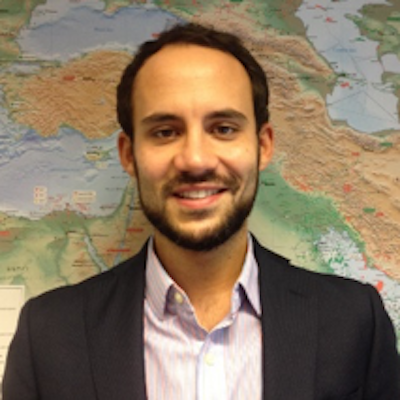 Luca Franza is the Head of the Energy, Climate and Resources Programme at Istituto Affari Internazionali (IAI). He is also an Associate Fellow at the Clingendael International Energy Programme (CIEP) in The Hague (The Netherlands), a lecturer in the Energy Master of the Paris School of International Affairs (PSIA) – SciencesPo, an LGBTI in Foreign Affairs Fellow at the Atlantic Council and a Member of the Sustainability Advisory Board of Edison SpA. He holds a BA in Political Science from LUISS University, a Master’s degree in International Security from SciencesPo and a PhD from the University of Groningen on the political-economic impact of transformations in long-term gas contracts between the EU and Russia. He is currently managing numerous projects on hydrogen, renewable energy, gas, international energy security and climate diplomacy.
Luca Franza is the Head of the Energy, Climate and Resources Programme at Istituto Affari Internazionali (IAI). He is also an Associate Fellow at the Clingendael International Energy Programme (CIEP) in The Hague (The Netherlands), a lecturer in the Energy Master of the Paris School of International Affairs (PSIA) – SciencesPo, an LGBTI in Foreign Affairs Fellow at the Atlantic Council and a Member of the Sustainability Advisory Board of Edison SpA. He holds a BA in Political Science from LUISS University, a Master’s degree in International Security from SciencesPo and a PhD from the University of Groningen on the political-economic impact of transformations in long-term gas contracts between the EU and Russia. He is currently managing numerous projects on hydrogen, renewable energy, gas, international energy security and climate diplomacy.
Wang Wen
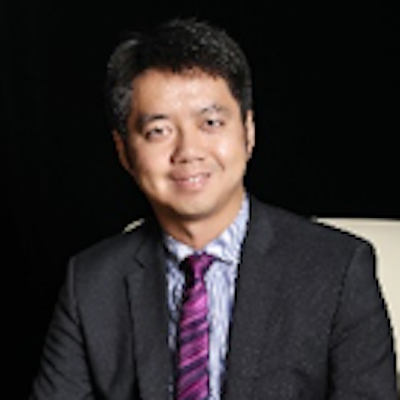 WANG Wen is the Executive Dean of Chongyang Institute for Financial Studies (RDCY), the Deputy Dean and Professor of Silk Road School, Renmin University of China. He is also the Secretary-General of the Green Finance Committee of China Society for Finance and Banking, a Researcher of the Financial Research Center of the Counsellor Office of the State Council. Dr. WANG used to be a Chief Op-eds Editor and Editorial Writer at Global Times, one of the most best-selling newspapers under the People’s Daily, and won the China News Awards in 2011. He has authored, co-authored, translated and contributed to more than 30 books, including “Great Power’s Long March Road: The views of China’s rejuvenation and the future of the world after hundred countries’ visit” and “The Think Tank Perspective of Wang Wen” series published by the People’s Publishing House including: “A Promising China: Chinese Think Tank’s Voice in the World”, “Think as a Tank: How China Influences the World”, and “America’s Anxiety: A Think Tank Scholar’s Perspective on China’s Rise & U.S. Response” have been republished or reprinted many times.
WANG Wen is the Executive Dean of Chongyang Institute for Financial Studies (RDCY), the Deputy Dean and Professor of Silk Road School, Renmin University of China. He is also the Secretary-General of the Green Finance Committee of China Society for Finance and Banking, a Researcher of the Financial Research Center of the Counsellor Office of the State Council. Dr. WANG used to be a Chief Op-eds Editor and Editorial Writer at Global Times, one of the most best-selling newspapers under the People’s Daily, and won the China News Awards in 2011. He has authored, co-authored, translated and contributed to more than 30 books, including “Great Power’s Long March Road: The views of China’s rejuvenation and the future of the world after hundred countries’ visit” and “The Think Tank Perspective of Wang Wen” series published by the People’s Publishing House including: “A Promising China: Chinese Think Tank’s Voice in the World”, “Think as a Tank: How China Influences the World”, and “America’s Anxiety: A Think Tank Scholar’s Perspective on China’s Rise & U.S. Response” have been republished or reprinted many times.
Dr. WANG has visited nearly 100 countries (including South Pole) and conducted extensive researches and field investigations. Many of his research reports have ended up with the instructions or comments from the CPC and state leaders of China. Besides, he is an advisory consultant for several Chinese important ministries and commissions and has won many honors such as“2014 Top Ten Figures of Chinese Think Tank”, “2015 China Reform and Development Pioneers”, “2016 Influential Figures of Chinese Think Tank”, “2017 Reputable Scholars and the ‘Four Batches of Talent Development Project’ talents”, and “special prize for policy research” in “National High-Level think Tank” construction outstanding achievements of Renmin University of China in 2019. In 2016, General Secretary Xi Jinping presided over the Symposium on Philosophy and Social Science, and Dr. Wang Wen was one of the ten speaking scholars.
Luiz De Mello
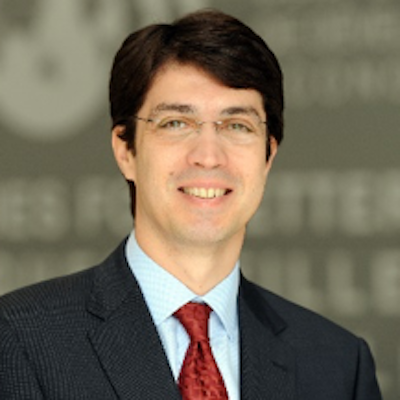 Luiz de Mello is Director of the Policy Studies Branch in the Economics Department of the OECD. Together with the policy studies teams, Mr. de Mello provides leadership and strategic direction within the economics department, ensuring the design and implementation of analysis and policies which promote stronger, cleaner, fairer and more inclusive economic growth for member and partner countries. Structural policy surveillance, short and long term economic outlooks, public finance and macroeconomic policy analysis are among the key workstreams for policy studies. Earlier in his career, Mr. de Mello held senior positions at the OECD, including Deputy-Director of the Public Governance Directorate and Chief of Staff and Counsellor to the Chief Economist. Prior to joining the OECD, he worked as a Senior Economist at the Fiscal Affairs Department of the International Monetary Fund, and as a Lecturer at the Economics Department of the University of Kent, United Kingdom. He holds a PhD in Economics from the University of Kent, United Kingdom.
Luiz de Mello is Director of the Policy Studies Branch in the Economics Department of the OECD. Together with the policy studies teams, Mr. de Mello provides leadership and strategic direction within the economics department, ensuring the design and implementation of analysis and policies which promote stronger, cleaner, fairer and more inclusive economic growth for member and partner countries. Structural policy surveillance, short and long term economic outlooks, public finance and macroeconomic policy analysis are among the key workstreams for policy studies. Earlier in his career, Mr. de Mello held senior positions at the OECD, including Deputy-Director of the Public Governance Directorate and Chief of Staff and Counsellor to the Chief Economist. Prior to joining the OECD, he worked as a Senior Economist at the Fiscal Affairs Department of the International Monetary Fund, and as a Lecturer at the Economics Department of the University of Kent, United Kingdom. He holds a PhD in Economics from the University of Kent, United Kingdom.
Alexander Dynkin
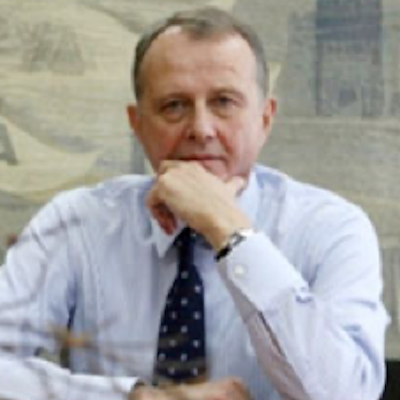 Alexander Dynkin is the Director of the Institute of World Economy and International Relations (IMEMO) at the Russian Academy of Science. He is a member of the Presidium of the Russian Academy of Sciences, the Russian Foreign Minister’s Scientific Council, the Presidium of the Presidential Council for Science and Education, and the Advisory Board of the Russian Security Council. Professor Dynkin served as the economic adviser to the Prime Minister of the Russian Federation between 1998-1999. Prior to this, he was a visiting professor and lecturer at Georgetown University. He holds a PhD in Economics.
Alexander Dynkin is the Director of the Institute of World Economy and International Relations (IMEMO) at the Russian Academy of Science. He is a member of the Presidium of the Russian Academy of Sciences, the Russian Foreign Minister’s Scientific Council, the Presidium of the Presidential Council for Science and Education, and the Advisory Board of the Russian Security Council. Professor Dynkin served as the economic adviser to the Prime Minister of the Russian Federation between 1998-1999. Prior to this, he was a visiting professor and lecturer at Georgetown University. He holds a PhD in Economics.
Ruben David
 Ruben David is a Research Assistant at the ISPI Centre on Business Scenarios, with a focus on issues related to climate change and energy. He is the ISPI coordinator for the Task Force on “climate change, sustainable energy and environment” at the Think 20.
Ruben David is a Research Assistant at the ISPI Centre on Business Scenarios, with a focus on issues related to climate change and energy. He is the ISPI coordinator for the Task Force on “climate change, sustainable energy and environment” at the Think 20.
He is conducting research as a PhD student at the School of International Studies at the University of Trento. His research analyses the role both the EU and China have played in shaping the global climate regime beyond their borders, in the context of UN multilateral cooperation. During his doctoral studies, he was a visiting researcher at the United Nations University Institute on Comparative Regional Integration Studies (UNU-CRIS) in Bruges. He worked as a Blue Book trainee at the European Commission in DG Energy.
Ruben has earned a BA and an MA in European and International Studies from the University of Trento. He holds a diploma in Transnational Governance from the Sant’Anna School of Advanced Studies in Pisa and spent a semester at the Pontifical Catholic University of Rio de Janeiro in Brazil investigating the favelas pacification process. He holds a Master in Diplomacy from SIOI (Rome). He has interned at the Italian Permanent Mission to the UN (Vienna) and at the UNRWA Representative Office to the EU.
Camilla Bausch
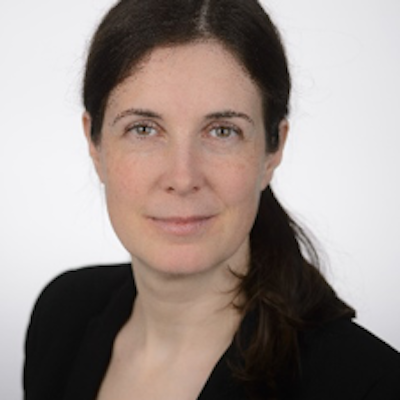 Dr. Camilla Bausch is Scientific & Executive Director of Ecologic Institute. Her main fields of research are climate and energy policy. She is Spokesperson for the Ecological Research Network and Associate Editor of the journal “Carbon & Climate Law Review” as well as initiator of the EnergyTransitionArt project. Dr. Bausch was a long-standing part of the German Delegation to the UN climate negotiations. Dr. Bausch sits on the numerous advisory boards, including the German Industry Initiative for Energy Efficiency (DENEFF), and the Institute for Climate, Energy and Mobility (IKEM).
Dr. Camilla Bausch is Scientific & Executive Director of Ecologic Institute. Her main fields of research are climate and energy policy. She is Spokesperson for the Ecological Research Network and Associate Editor of the journal “Carbon & Climate Law Review” as well as initiator of the EnergyTransitionArt project. Dr. Bausch was a long-standing part of the German Delegation to the UN climate negotiations. Dr. Bausch sits on the numerous advisory boards, including the German Industry Initiative for Energy Efficiency (DENEFF), and the Institute for Climate, Energy and Mobility (IKEM).
Marzio Galeotti
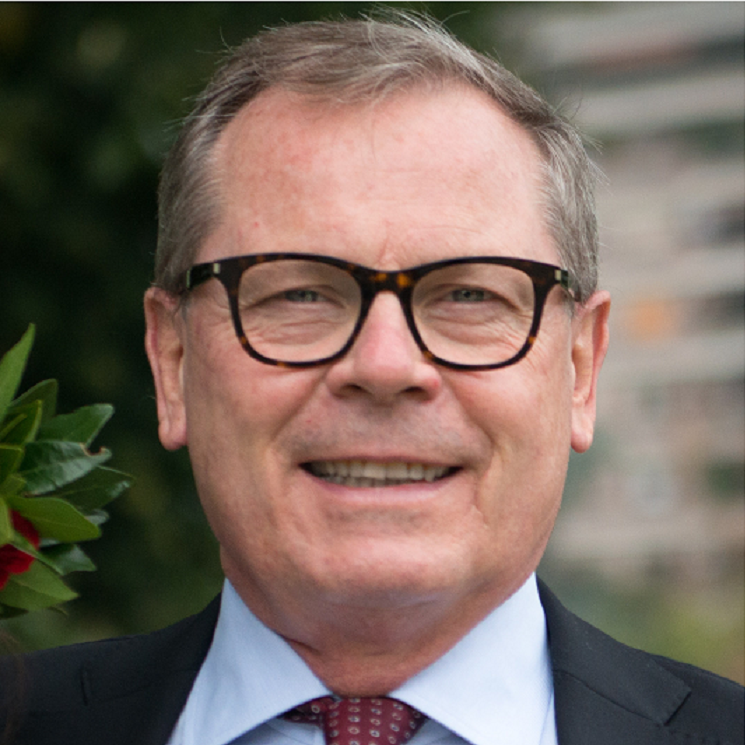 Marzio Galeotti Professor of Environmental and Energy Economics at the Università degli Studi di Milano. He graduated from Università Bocconi in Milan and holds a M.Phil. and a Ph.D. in Economics from New York University. He is Director of Scientific Research at Fondazione Eni Enrico Mattei (FEEM) in Milan, where previously was the coordinator of the Climate Change Modelling and Policy research program. He is Fellow of the Centre for Research on Geography, Resources, Environment, Energy & Networks (GREEN) at Università Bocconi of Milan and a Visiting Fellow at King Abdullah Petroleum Studies and Research Center (KAPSARC). He is Review Editor for Chapter 4 (“Mitigation and development pathways in the near- to mid-term”) of the Sixth Assessment Report (AR6), IPCC WGIII, 2021. Founder and first President of the Italian Association of Environmental and Resource Economists (IAERE), he is a member of the editorial board of lavoce.info, of the scientific committee of Centro per un Futuro Sostenibile and of Fondazione Lombardia per l’Ambiente. He has published extensively in scholarly journals and actively participates to the policy debate through media interviews, comments and articles in newspapers and magazines and speeches and presentations in non-academic public events.
Marzio Galeotti Professor of Environmental and Energy Economics at the Università degli Studi di Milano. He graduated from Università Bocconi in Milan and holds a M.Phil. and a Ph.D. in Economics from New York University. He is Director of Scientific Research at Fondazione Eni Enrico Mattei (FEEM) in Milan, where previously was the coordinator of the Climate Change Modelling and Policy research program. He is Fellow of the Centre for Research on Geography, Resources, Environment, Energy & Networks (GREEN) at Università Bocconi of Milan and a Visiting Fellow at King Abdullah Petroleum Studies and Research Center (KAPSARC). He is Review Editor for Chapter 4 (“Mitigation and development pathways in the near- to mid-term”) of the Sixth Assessment Report (AR6), IPCC WGIII, 2021. Founder and first President of the Italian Association of Environmental and Resource Economists (IAERE), he is a member of the editorial board of lavoce.info, of the scientific committee of Centro per un Futuro Sostenibile and of Fondazione Lombardia per l’Ambiente. He has published extensively in scholarly journals and actively participates to the policy debate through media interviews, comments and articles in newspapers and magazines and speeches and presentations in non-academic public events.
Máximo Torero Cullen
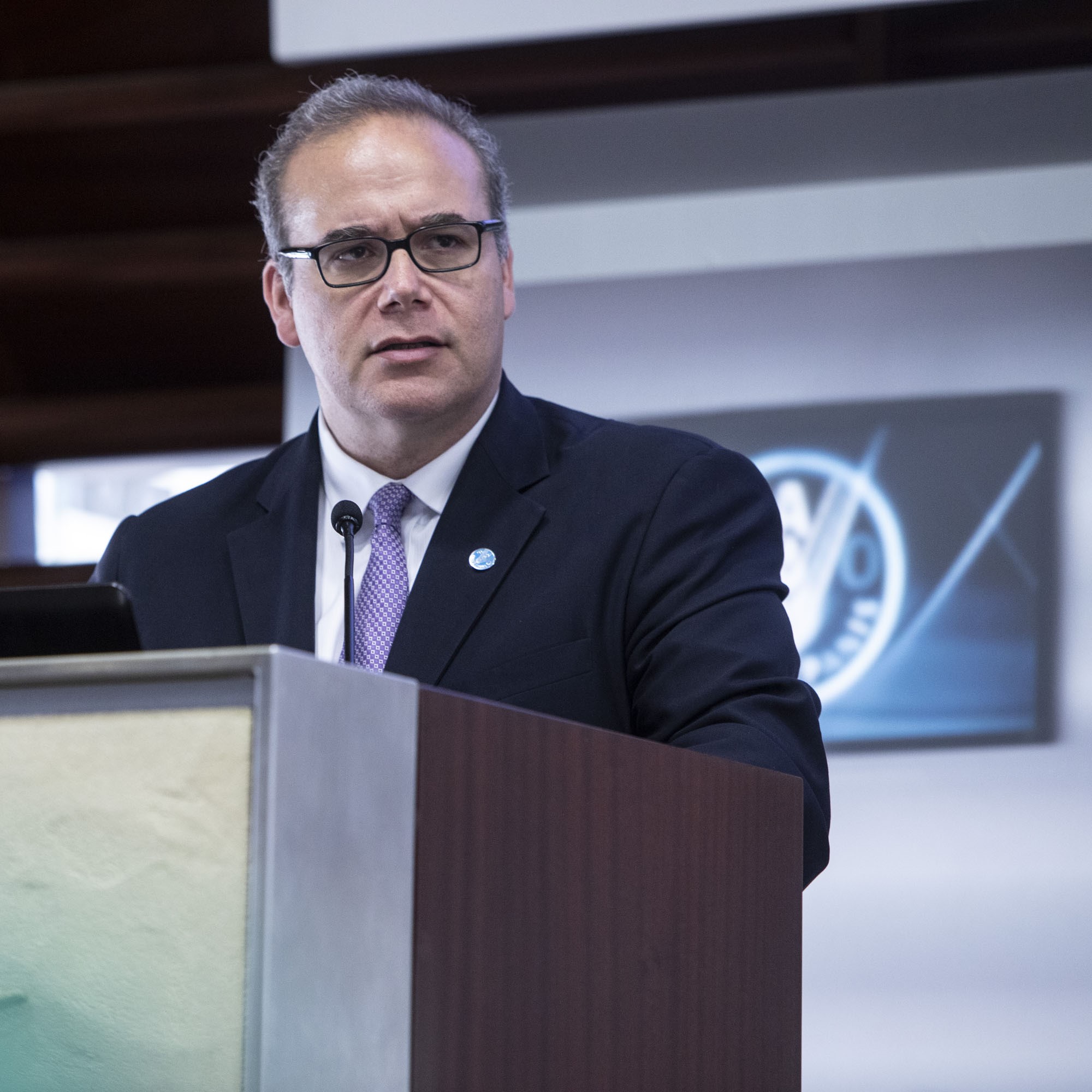 Máximo Torero Cullen is the Chief Economist of the Food and Agriculture Organization (FAO). He joined the Organization in January 2019 as Assistant Director-General for the Economic and Social Development Department. Prior to joining FAO, he was the World Bank Group Executive Director for Argentina, Bolivia, Chile Paraguay, Peru and Uruguay since November 2016 and before the Bank Dr. Torero led the Division of the Markets, Trade, and Institutions at the International Food Policy Research Institute (IFPRI). His major research work lies mostly in analyzing poverty, inequality, importance of geography and assets (private or public) in explaining poverty, and in policies oriented towards poverty alleviation based on the role played by infrastructure, institutions, and on how technological breakthroughs (or discontinuities) can improve the welfare of households and small farmers. His experience encompasses Latin America, Sub-Saharan Africa, and Asia.
Máximo Torero Cullen is the Chief Economist of the Food and Agriculture Organization (FAO). He joined the Organization in January 2019 as Assistant Director-General for the Economic and Social Development Department. Prior to joining FAO, he was the World Bank Group Executive Director for Argentina, Bolivia, Chile Paraguay, Peru and Uruguay since November 2016 and before the Bank Dr. Torero led the Division of the Markets, Trade, and Institutions at the International Food Policy Research Institute (IFPRI). His major research work lies mostly in analyzing poverty, inequality, importance of geography and assets (private or public) in explaining poverty, and in policies oriented towards poverty alleviation based on the role played by infrastructure, institutions, and on how technological breakthroughs (or discontinuities) can improve the welfare of households and small farmers. His experience encompasses Latin America, Sub-Saharan Africa, and Asia.